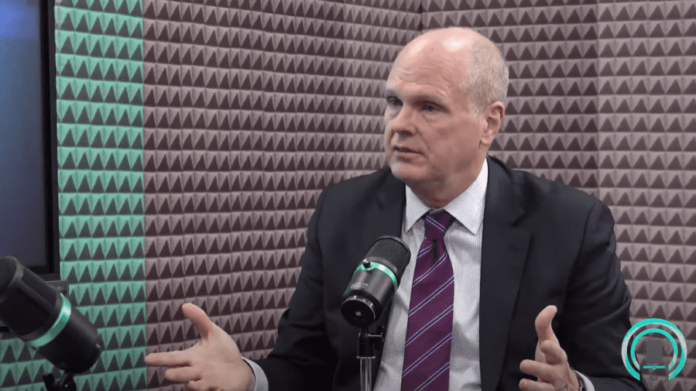“The Republic of Moldova has probably lost some of the time and progress other countries have made in the last 20 or 25 years. Five years ago, Moldova was probably considered one of the slower-moving countries. Economic growth was strong, but institutions were not as good as in other countries in the region, and some of the results achieved were not as good. I think it has recovered a lot in recent years.” The statement was made by Mark Horton, Deputy Director of the European Department of the International Monetary Fund (IMF), on the “Giving Meaning to Money” podcast.
During the interview, the IMF official expressed admiration for Moldova’s resilient economy, noting its ability to withstand the adverse impacts of the pandemic and subsequent neighboring conflict. The official also commended the adept management of these challenges by institutions in Chisinau.
“I believe that the geopolitical developments, the war in Ukraine have made the international community focus on how to support Moldova, how to help it get through this difficult period, and how to support Moldova in the process of European integration. In my opinion, this has given impetus to change. Apart from that, I would like to note that Moldova is a relatively small country. In other words, it is possible to make rapid progress: progress can be felt quickly in a small country with two or three million inhabitants and an economy of USD 17-18 billion. Progress in Moldova can be felt quickly compared to a much larger country, where these things take longer,” says Horton.
In underscoring the IMF’s support for Moldova, Horton said that this signifies a positive development not just for the nation’s economy but also for external donors. He went on to elaborate on the rationale behind this viewpoint.
FOR THE MOST IMPORTANT NEWS, FOLLOW US ON TWITTER!
“The existence of an IMF programme usually means that the country has a good and sound macroeconomic policy framework, promotes an effective monetary policy so that inflation remains relatively low and stable and the exchange rate is predictable… The IMF programme is a sign that the budget is at the right level so that it does not generate excessive pressures in the economy, while spending is increasingly efficient, increasingly well targeted, etc… When donors can be sure that the authorities are managing the economy well, they provide support with confidence. At the same time, the IMF also provides financing. It’s not just a programme of actions, but we also provide financial support, although we don’t usually contribute the full amount, the total package of support, says Horton.
Asked why the IMF is funding Moldova, Mark Horton said:
“Moldova, as a member country, has the option to seek financial support from the IMF when facing economic challenges or financial difficulties. We extend our support when Moldova is dedicated to implementing policy measures to address its current challenges and enjoys the backing of all IMF member states,” he explained.
In the round of questions, Horton was asked how he felt about cash.
“I carry cash with me, but I never use it. But, of course, cash has a future. However, I think it will become less and less popular. It’s convenient to use electronic payments: it’s fast, it’s efficient, it’s clear, it’s transparent. Cash will always exist. It’s nice to have banknotes in your pocket, but I think their role will become less and less,” the IMF official concluded.
Mark Horton was the IMF Permanent Representative to Moldova from 1996-1999.
The full interview can be viewed below.


